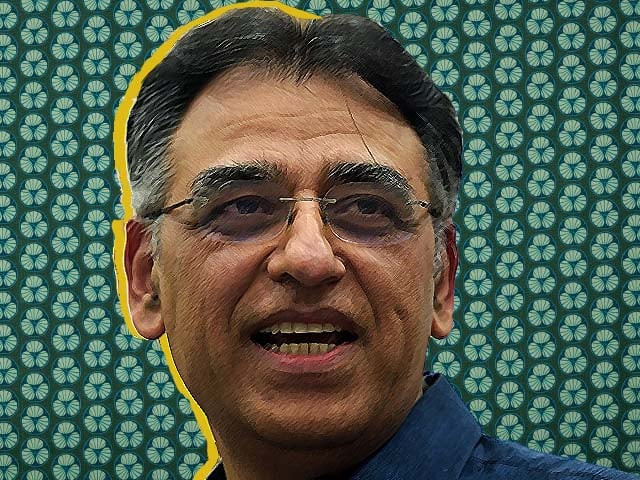Political promises are like ephemeral realities. Parties who win the hearts and minds of people do so on the back of the promises they make, and its no surprise that heartbreak generally swiftly follows every new regime. Imran Khan’s government is no different. The economic mess has meant that a lot of people who were vying for change are now running away from it. This is due to a couple of reasons. Firstly, Imran appointed Shabbar Zaidi, the man who showed people ways of saving taxation for a living, as the head of Federal Board of Revenue. Secondly, he made deals with the International Monetary Fund (IMF), which he said he wouldn’t do. Thirdly, he has filled his government with people who have been tried and tested by other political parties and found seriously wanting.
This brings us to our current point of discussion: why was Asad Umar removed from his position as finance minister and why has he been brought back as the minister for planning? If we are to briefly peruse through the list of incumbent Cabinet office bearers, one might see a possible piece of information which could shed light upon Umar’s current predicament.
The majority of ministers in the current Cabinet are politicians who have had political affiliations in the past with rival political parties or have been added to the rostrum due to on-going political alliances. Imran’s promises of introducing new faces to the landscape of Pakistani politics has been limited to three or four people, at least as far as the Cabinet is concerned. This turn of events hasn’t fared too well for the people who joined him in the hope that he would break the mould. Having said that previous political experience gives such PTI members an edge over individuals like Umar who are not used to the workings of the political system.
Furthermore, the biggest problem the PTI government faced when it took office was not the issues plaguing Pakistan but rather the ticking time bomb of promises Imran had made and his insistence that he could remedy issues such as corruption and the economy in an impossible time-frame. With real economic issues unravelling before Umar once he took charge of the ministry, he must have definitely realised that the government has an uphill task ahead of them, which may well require more than just five years in power to accomplish. Given that Umar happens to be a straight forward ex-CEO, he would have painted this glum scenario for his boss, and one can assume that the message did not go down well.
Imran didn’t want to go to international lending institutions, or so it seemed, and it was becoming evident that his financial magician did not possess the requisite spells needed to carry out the task at hand. So, at the brink of facing a political disaster too early in his tenure as prime minister, Imran asked Umar to step down. If the decision was taken without taking him into confidence, one could infer that he wasn’t part of the inner circle anymore.
To see this as a parable – Umar is the civilian within the ‘family,’ the mafia family that is. He is a man who wants to do the right thing but unfortunately lacks the guile needed to maneuver past those who surround him. As finance minister he was unfortunately unable to defend himself from everyone within his own party and the manner in which PTI members conduct themselves has made it evident that Umar is certainly an outlier. For instance, in a recent video showing Imran and Navjot Singh Sidhu riding the train together in Kartarpur, a prominent PTI politician can be seen profusely congratulating the premier on his achievement. The effusive flow of sycophantic words could be enough to fill a hot air balloon. It is hard to imagine a man like Umar acting so servile before his political leader.
As a result, Imran now finds himself in a fix, where all his promises of a Naya Pakistan are drowning in the sea of problems plaguing old Pakistan. Surrounded by the remnants of his political enemies, he has no choice but to call back one of the few competent people he can rely upon. Given that Umar will probably work as diligently as he did when he headed the finance ministry, we should await his removal from the planning ministry somewhere around the mid of next year. Being the civilian that he is, Umar will have to end up paying more attention to his back than to the task at hand.
Asad Umar – second time lucky?
Asad Umar will have to end up paying more attention to his back than to the task at hand.



COMMENTS
Comments are moderated and generally will be posted if they are on-topic and not abusive.
For more information, please see our Comments FAQ